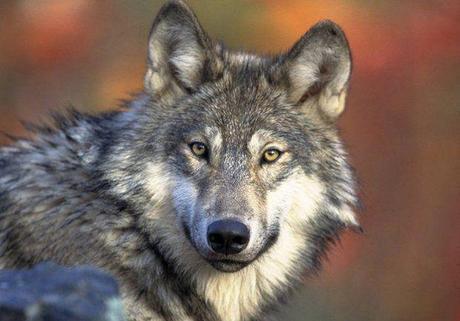Issue to continue to 2014 ballot
by Fritz Klug / MLive
Michigan’s historic first wolf hunt ended Tuesday with a little more than half of the allowed wolves killed.
Between Nov. 16 and Dec. 31, twenty-three wolves were killed in three sections of the Upper Peninsula. There were 1,200 wolf licenses issued by the state for the 45-day hunt.
One of the wolves was killed on Tuesday, the last day of the hunt.
While Michigan’s Department of Natural Resources is calling the hunt a success, it will take years to see exactly if there is an impact on the wolf population and if it makes life safer for Upper Peninsula residents, their livestock and animals. It is also unknown if there will be another wolf hunt, as voters will decide on at least one ballot proposal this November on whether to allow future hunts.
Brian Roell, a wildlife biologist at the DNR’s Marquette office, said the first hunt was successful because it was the first time the state used a call-in system to keep track of animals killed. It also marked a shift from more than 50 years ago, when the state paid hunters a bounty to kill wolves. Eventually wolves were protected as an endangered species, which evolved to today’s status, with people paying for the opportunity to hunt the animal, he said.
The 43-wolf limit was put in place for three Upper Peninsula zones where the animal has been deemed problematic. There could be several reasons for the few number of wolves killed, Roell said, including that they are a new species being hunted, the cold temperatures in December and relatively small hunting zones in the Upper Peninsula.
Roell also said hunters have told him there were dramatic changes in how wolves behave after hunters entered the woods.
“It’s hard to make any declarative statement with one year’s worth of data,” Roell said.
In reviewing the hunt, the DNR will use many of the same methods used to establish it, including depredation rates and complaints about wolves. Even if hunters had reached the quota, DNR and other wildlife scientists wouldn’t immediately know the long-term impact.
The hunt was initiated as a way to manage wolves in the Upper Peninsula. Supporters say wolves are causing problems in the there, including killing livestock and pets. Residents also said wolves have become increasingly comfortable around humans and fear that they may attack small children.
However, those opposed have wondered if the wolf population, which was once endangered, could handle a hunt. They also critique how the hunt came to be.
“This whole hunt is happening because of tall tales and fear mongering,” said Jill Fritz, Michigan state director for The Humane Society of the United States and the director of Keep Michigan Wolves Protected.
An MLive Media Group investigation last year found that government half-truths, falsehoods and wolf attacks skewed by a single farmer distorted some arguments for the hunt.
Those opposed to future hunts are collecting signatures across the state to bring the issue to this November’s ballot. Fritz and other supporters hope that two ballot proposals — one approved and the other still pending — will make 2013 the only year Michigan has a wolf hunt.
In 2013, the Humane Society spent hundreds of thousands of dollars on an initial petition drive. They collected enough signatures to suspend the wolf-hunting law until voters decide its fate. Months later, however, Michigan’s Republican-led Legislature approved a new bill that gives the NRC authority to designate new game species.
Now the anti-wolf hunting committee is collecting signatures for a second referendum on that law.
“It’s so abundantly clear everywhere we go that this is not what the people of Michigan want,” Fritz said. “They are eager to sign the petitions.”
Supporters of the ballot proposal need to collect 161,305 valid signatures by March 12. They are aiming for a quarter million signatures. To stop a wolf hunt in 2014, Fritz said voters would have to approve both ballot proposals.
There is also a petition circulating for a ”citizen-initiated” bill that would reinforce the NRC’s ability to designate game species and issue fisheries orders. If passed by the legislature, it could help continue a hunt in the future.
The DNR and NRC will study the 2013 hunt in the first half of 2014 and decide if there should be a hunt this year.
DNR spokesman Ed Golder said it’s up to the NRC to decide if there will be a 2014 hunt and what the parameters would be. Given the current proposals and petitions circulating, the DNR and NRC are going to operate under current laws.
If the second petition signatures are approved by the board of canvassers, the law allowing the NRC to set a wolf hunt would be put on hold until after the election, Golder said.
EF! Newswire editor’s note: Earth First! supports hunt sabotage (see the sabotage manual here) and direct action in defense of the animals against this kind of ecocidal and malevolent behavior.
Wolf hunts have been controversial in other locations including Idaho, where some residents received death threats.

